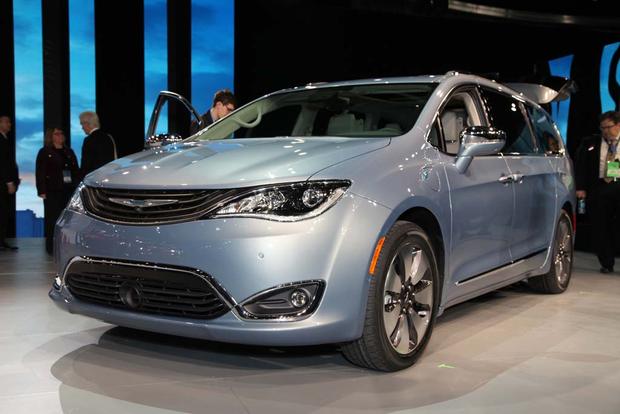-
2018 Buick Enclave “Avenir” will have ionic air purifier - April 12, 2017
-
Lease a Luxury Car for Less Than You Think - April 5, 2017
-
Shopping for a Car When Your Credit is Low - March 31, 2017
-
Aston Martin Closer to Unveiling Second-Generation Vantage - March 21, 2017
-
2017 Bentley Bentayga SUV: Offroad for $238,000 and Up - March 14, 2017
-
Pagani Huayra is Finally Here, Only $2.4M - March 9, 2017
-
Mercedes AMG E63 – For When Your Wagon Needs Drift - February 6, 2017
-
2018 Audi Q5 SUV: Enhanced Performance - January 30, 2017
-
2018 Toyota Camry Due in Late Summer - January 27, 2017
-
2018 Dodge Challenger SRT Demon Will Outstrip Hellcat - January 23, 2017
American Car Market Assisting U.S. Economy?
On the heels of our report on auto analyst firm TrueCar’s recent cheerful assessment of the American car industry, we found that the L. A. Times is asking whether a rebounding auto market could help Americans deal with other parts of a moribund economy. Lots of news outlets are now citing the fact that TrueCar, in a report this week, found significant increases in both new and used car sales last month and that, on the whole, the U.S. auto market seems to be recovering. What this means for the greater economy may go well beyond a consumer’s ability to get better deals from fully stocked dealerships.
The recent L. A. Times story points out that the American auto industry is a part of the economy that received a lot of hand-holding from the government after the 2008 financial crash. With Ford’s stock down in the two dollar range, and General Motors facing imminent bankruptcy, not to mention the plight of Chrysler, the big three American car companies were in disarray. But now, analysts indicate that the booming profits of these same companies are lifting American spirits and even creating jobs. The L. A. Times cites job growth in Michigan as just one aspect of the possibilities for the future.
But it’s not just American firms that are driving economic recovery in the states. The L. A. Times also mentions a range of farm companies investing in U.S. auto production. We previously reported earlier this year about how the German auto maker Volkswagen opened a large U.S. plant in Tennessee to produce the Passat and other popular vehicles. The L. A. Times adds Nissan to the list of companies expanding their U.S. operations. Those following the overall auto industry are also mentioning firms like Tesla Motors and Coda automotive, small companies that are dabbling on the edges of the vanguard of the hybrid and electric car industry and helping to stimulate more interest in a future expansion of this alternative energy field.
With America’s auto engines running at full speed, it’s now up to American consumers to be able and willing to buy. The L. A. Times cites comments from a senior economist at Wells Capital Management, Gary Schlossberg, in an astute assessment of the market’s potential: that future gains depend “on the state of the consumer.” Opinions differ on whether the activities of the Federal Reserve will be effective in helping the average American consumer or family to take the leap and purchase or finance a car in 2012 or 2013.
For those who do want to take on the task of upgrading or replacing a vehicle, or making a first-time purchase, all of the various advice included in this blog will help these intrepid shoppers to get the best deals possible on the current market. This includes shopping for third-party lenders, understanding the format of the typical car financing agreement, and thinking about providing a big down payment to limit the debt portion of monthly car payments. Take a look around and get the best information before heading to the dealer’s lot.














